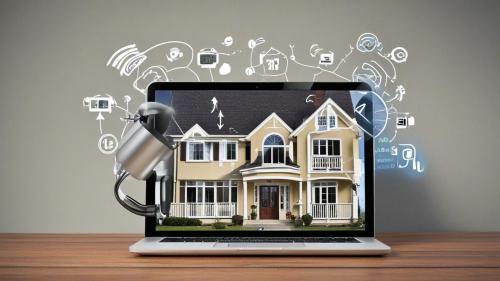When it comes to home security, locks are the silent sentinels we often take for granted. They work tirelessly to protect us from burglary, unauthorized entries, and everything in between. Today, as technology intrudes into every aspect of our lives, we find ourselves pondering the effectiveness of smart locks vs traditional locks. So, is your home secure enough with just deadbolts, or should you inject some technology into your life?
Both smart and traditional locks have their champions. Traditionalists argue for the time-tested nature of deadbolts—they're relatively simple, you're in complete control, and are, at least by lore, the type of locks that have secured doors for centuries. Smart lock enthusiasts, however, tout the convenience they bring: unlock your door remotely, monitor entries, and, perpetually fascinating, eliminate the need for physical keys.
The tactile sensation of a traditional lock is comforting to many. Gripping a key firmly, inserting it into its awaiting slot, and feeling the click of home is a cherished routine. Such locks boast strength in their simplicity. They're tough to pick or damage, requiring substantial effort from any would-be intruder. However, therein lies the flaw: they offer little in terms of surprise or innovation.
Enter the world of smart locks. These devices are equipped with capabilities limited only by imagination and connectivity. With a tap on your smartphone, you can lock or unlock your door, wherever you are in the world. Some models even feature audio or video feedback, allowing you to speak directly with someone at your front door.
Skeptics of smart locks point to potential vulnerabilities to hackers. No one likes the idea of a shadowy figure unlocking their front door from an undisclosed spot on the Internet. Yet, designers consistently work to bolster security measures, integrating two-factor authentication and alert systems when suspicious activity is detected.
Herein lies the debate: is convenience worth potentially higher vulnerability? Should modern users cling to an era where locks and keys are tangible, or move forward into an embrace with an AI-driven keychain?
Research indicates that smart locks, which often integrate seamlessly with broader home security systems, provide attractive benefits. They complement cameras, alarms, and broader automated systems rather than replace robust traditional locks outright.
Using both types of locks in tandem might just spell the golden mean. Users can enjoy the fall-back reliability of sturdy deadbolts with the technological edge of smart locks during moments of convenience or connectivity. This combination may surprisingly prove more cost-effective in reducing potential vulnerabilities overall.
As homes get smarter, almost like a living, breathing computer system, doors too must evolve. What remains irrefutable is that regardless of the type of locks you favor, they're strongest when paired with an informed user. Knowledge and vigilance are your first lines of defense.
Ultimately, the choice comes down to your lifestyle, your comfort with technology, and your specific security needs. A back-to-basics lock approach or a Wi-Fi-connected fortress are each valid, bolstering your peace of mind.
As we continue to navigate our rapidly changing world, continuing to question and compare is critical. Perhaps we are only at the dawn of the lock revolution. Regardless of your side in the ongoing smart vs traditional lock debate, both options deserve a place in your security toolkit. And both, at the end of the day, should empower you to protect what’s most important—your sanctuary, your home.
Smart Locks vs Traditional Locks: Is Your Home Secure Enough?




